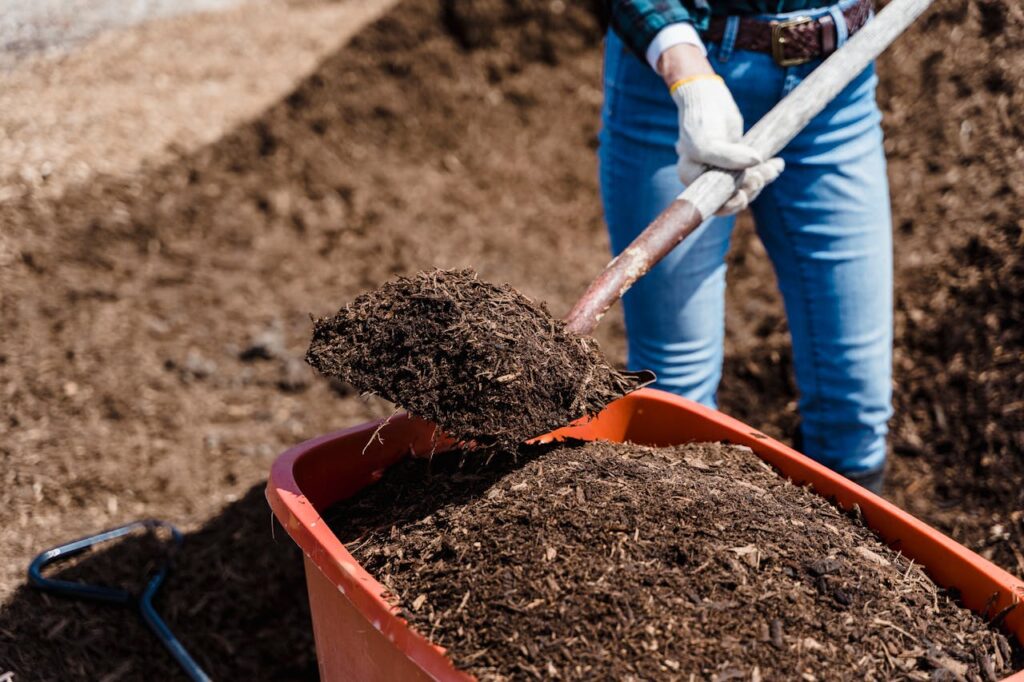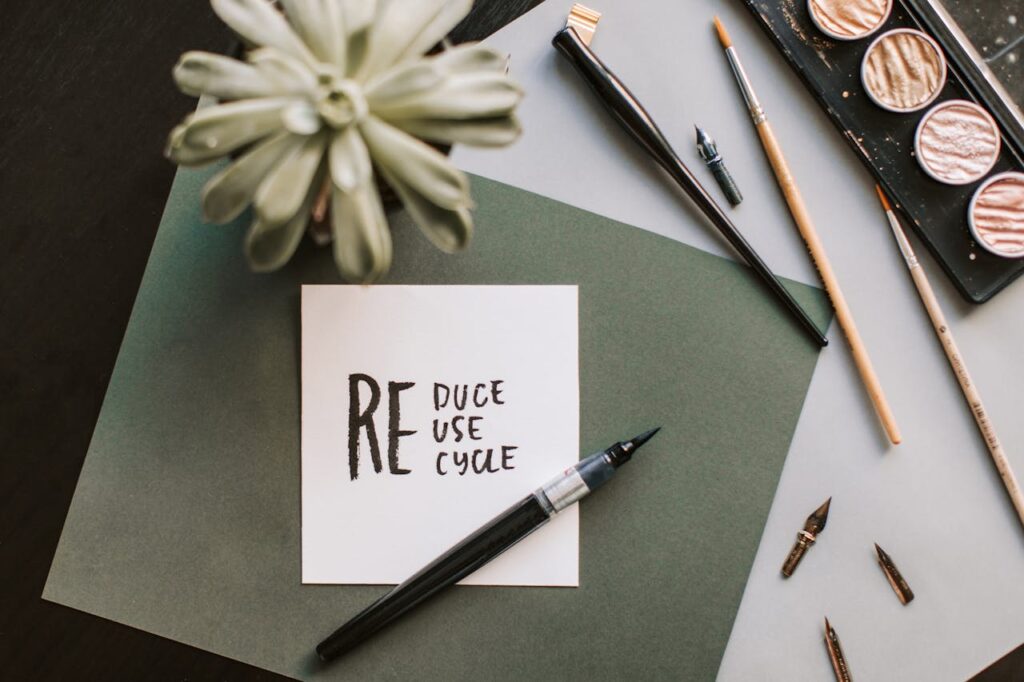
1. Understanding Eco-Friendly: Definition and Importance
When we talk about “eco-friendly,” we’re essentially discussing actions and products that are kind to the environment. The eco-friendly meaning encompasses a range of practices that aim to reduce our negative impact on the planet. This includes everything from recycling and conserving water to choosing sustainable products and reducing energy consumption. In essence, being eco-friendly means making choices that help preserve our planet for future generations. It’s about living in harmony with nature and taking steps to protect the earth.
What Does Eco-Friendly Really Mean?
Eco-friendly meaning can be broken down into simple terms: it’s all about being friendly to our ecosystem. Think of it as a lifestyle choice that prioritizes the health and well-being of our planet. This means using resources wisely, reducing waste, and supporting products and practices that are sustainable. When you choose to go eco-friendly, you’re making a conscious effort to reduce your environmental footprint. Every little action, like choosing reusable bags or turning off lights when not in use, contributes to a larger goal of sustainability.
Why Is Eco-Friendliness Important?
The importance of understanding ‘eco-friendly’ cannot be overstated. Our planet is facing numerous environmental challenges, including climate change, pollution, and resource depletion. By adopting eco-friendly practices, we can help mitigate these issues and create a healthier environment. It’s about ensuring that the resources we have today are available for future generations. Moreover, being eco-friendly often leads to a more fulfilling and conscious lifestyle. You become more aware of your actions and their impact on the world around you.
Simple Steps to Be More Eco-Friendly
You don’t need to overhaul your entire life to embrace the eco-friendly. Start with small, manageable changes that can make a big difference over time. For instance, you can reduce your water usage by fixing leaks and taking shorter showers. Opt for energy-efficient appliances and light bulbs to cut down on electricity consumption. When shopping, look for products made from sustainable materials or those that are packaged in eco-friendly ways. Remember, every small step counts towards a larger goal of environmental preservation.
Eco-Friendly Products and Practices
The market is now flooded with products that align with the eco-friendly term. From biodegradable cleaning supplies to solar-powered gadgets, there are countless options to choose from. When you buy these products, you’re supporting companies that prioritize the environment and sustainability. Additionally, adopting eco-friendly practices in your daily life can significantly reduce your environmental impact. Simple acts like recycling, composting, and reducing plastic use can go a long way in promoting a healthier planet.
The Ripple Effect of Eco-Friendly Living
Embracing the eco-friendly lifestyle has a ripple effect that extends beyond your immediate surroundings. When you make eco-friendly choices, you inspire those around you to do the same. Your actions can influence friends, family, and even your community to adopt more sustainable practices. This collective effort can lead to significant positive changes for the environment. Moreover, living an eco-friendly lifestyle can enhance your overall well-being. You become more connected to nature and develop a deeper appreciation for the resources we often take for granted.
Educating Others About Eco-Friendly Practices
One of the best ways to spread the eco-friendly lifestyle is through education. Share your knowledge and experiences with others to inspire them to adopt eco-friendly habits. This could be through social media posts, community events, or simply talking to friends and family about the importance of sustainability. The more people understand the significance of being eco-friendly, the greater the collective impact on our planet. Education is key to fostering a culture of environmental awareness and responsibility.
2. Simple Swaps for a Sustainable Home

Making your home eco-friendly doesn’t have to be difficult or expensive. By incorporating a few simple swaps into your daily routine, you can significantly reduce your environmental footprint while creating a more sustainable and healthier living space. Here are some easy and practical changes you can make today.
Swap Plastic Bags for Reusable Bags
One of the easiest ways to start living a more eco-friendly life is by ditching plastic bags in favor of reusable ones. Every time you go shopping, bring your own sturdy, reusable bags. They’re not only better for the environment but also more durable and stylish. Plus, many stores offer discounts for bringing your own bags, so you might save some money too!
Replace Paper Towels with Cloth Towels
Paper towels are convenient but incredibly wasteful. Switching to cloth towels is a small change that makes a big impact. You can use cloth towels for everything from wiping up spills to drying your hands. They’re easy to wash and reuse, making them a more sustainable choice. Keep a stack of them in your kitchen so you always have one handy when you need it.
Use Glass Jars for Storage
Plastic containers are common in many kitchens, but glass jars are a more eco-friendly option. Glass jars are perfect for storing everything from dry goods to leftovers. They’re durable, reusable, and can be easily cleaned. Plus, they look great in your pantry and help you reduce plastic waste. Start saving those glass jars from your grocery items, and soon you’ll have a practical and sustainable storage solution.
Swap Out Single-Use Items
Single-use items, such as disposable plates and cutlery, create a lot of waste. Instead, opt for reusable alternatives. Keep a set of stainless steel or bamboo cutlery in your bag for eating on the go. Use reusable plates and cups at home and for picnics. These swaps not only reduce waste but also add a touch of elegance to your meals, making your dining experiences more enjoyable.
Choose Natural Cleaning Products
Many conventional cleaning products contain harmful chemicals that are bad for the environment and your health. Switching to natural cleaning products is a great way to make your home more eco-friendly. You can buy eco-friendly cleaners at the store or make your own using ingredients like vinegar, baking soda, and essential oils. These natural alternatives are just as effective and much safer for your family and pets.
Invest in Energy-Efficient Appliances
If you’re looking to make a bigger impact, consider investing in energy-efficient appliances. These appliances use less energy, which is not only better for the environment but also saves you money on your utility bills. Look for appliances with the ENERGY STAR label, which indicates they meet energy efficiency guidelines set by the U.S. Environmental Protection Agency. From refrigerators to washing machines, there are plenty of options to choose from.
Switch to LED Light Bulbs
Another simple and effective swap is replacing your traditional incandescent light bulbs with LED bulbs. LED bulbs use significantly less energy and last much longer, making them a more sustainable choice. They come in a variety of styles and brightness levels, so you can find the perfect ones for every room in your home. This small change can make a big difference in your energy consumption and reduce your carbon footprint.
Install a Water Filter
Instead of buying bottled water, which creates a lot of plastic waste, install a water filter in your home. Whether it’s a filter for your faucet, a pitcher filter, or a whole-house system, filtered water tastes great and is much better for the environment. By using a water filter, you can enjoy clean, safe drinking water without the environmental impact of plastic bottles.
Opt for Eco-Friendly Decor
Decorating your home with eco-friendly items is another great way to make it more sustainable. Choose furniture made from reclaimed wood or recycled materials. Look for home decor items made from natural fibers like cotton, wool, or jute. Not only are these materials better for the environment, but they also add a unique and stylish touch to your home. Plus, supporting companies that prioritize sustainability helps promote a greener economy.
Embrace Second-Hand Shopping
Buying second-hand items is an excellent way to reduce waste and save money. Thrift stores, garage sales, and online marketplaces are great places to find everything from furniture to clothing. By purchasing second-hand, you’re giving items a new life and keeping them out of landfills. Plus, you can find some truly unique pieces that add character to your home. Make second-hand shopping a fun adventure and see what treasures you can discover.
Grow Your Own Herbs
Growing your own herbs is a simple and rewarding way to make your home more eco-friendly. Even if you don’t have a garden, you can grow herbs in pots on your windowsill or balcony. Fresh herbs not only taste better than store-bought ones but also reduce the need for plastic packaging. Plus, having a few plants around your home can improve air quality and add a touch of greenery to your space. Start with easy-to-grow herbs like basil, mint, or rosemary, and enjoy the benefits of having fresh, eco-friendly ingredients at your fingertips.
3. Eco-Friendly Products Worth Trying
Living sustainably doesn’t mean you have to sacrifice convenience or comfort. There are countless eco-friendly products on the market that make it easier than ever to go green. Whether you’re looking to reduce waste, save energy, or simply make more sustainable choices, there’s an eco-friendly product out there for you. Here are some eco-friendly products worth trying that can seamlessly fit into your lifestyle and make a positive impact on the planet.
Reusable Water Bottles and Coffee Cups
Single-use plastics are a major environmental concern, but you can easily cut down on plastic waste with reusable water bottles and coffee cups. These eco-friendly products are designed to be used over and over again, reducing the need for disposable plastic bottles and cups. They come in various sizes, colors, and materials, making it easy to find one that suits your style. Plus, many coffee shops offer discounts when you bring your own cup, saving you money while helping the planet.
Switching to a reusable water bottle can significantly reduce your plastic footprint. Brands like Hydro Flask, S’well, and Klean Kanteen offer durable and stylish options that keep your drinks cold or hot for hours. Similarly, reusable coffee cups from brands like KeepCup and Stojo are perfect for your morning caffeine fix. They are collapsible, easy to clean, and can even fit in your pocket or bag when not in use. By choosing these eco-friendly products, you not only help reduce plastic waste but also enjoy a more stylish and personalized drinking experience.
Bamboo Toothbrushes
Plastic toothbrushes contribute to a significant amount of waste, as millions of them are thrown away every year. Bamboo toothbrushes are an excellent alternative, as they are biodegradable and have a much smaller environmental impact. These eco-friendly products are just as effective as their plastic counterparts but are much kinder to the planet. They often feature soft bristles and ergonomic handles, making them comfortable to use.
Bamboo is a fast-growing plant that requires minimal resources to cultivate, making it an ideal material for sustainable products. Brands like Brush with Bamboo and Humble Brush offer high-quality bamboo toothbrushes that are both affordable and eco-friendly. Once your bamboo toothbrush has reached the end of its life, you can compost the handle, reducing the amount of waste that ends up in landfills. By switching to bamboo toothbrushes, you can make a simple yet impactful change in your daily routine.
Reusable Grocery Bags
Plastic bags are one of the most common pollutants, but switching to reusable grocery bags can make a big difference. These eco-friendly products are designed to be used repeatedly, reducing the need for single-use plastic bags. They come in various sizes and styles, from simple canvas totes to foldable nylon bags that can easily fit in your pocket or purse. Many reusable grocery bags are also machine washable, making them easy to keep clean.
Reusable grocery bags are not only better for the environment but also more durable and convenient. Brands like Baggu and ChicoBag offer a wide range of stylish and functional options. Some bags even come with insulated compartments, perfect for keeping your groceries fresh on the way home. By using reusable grocery bags, you can significantly reduce your plastic consumption and contribute to a cleaner, greener planet.
Eco-Friendly Cleaning Products
Traditional cleaning products often contain harsh chemicals that can be harmful to both the environment and your health. Eco-friendly cleaning products, on the other hand, are made from natural, non-toxic ingredients that are safe for you and the planet. These products are just as effective at cleaning as their conventional counterparts but without the negative environmental impact. Brands like Seventh Generation, Method, and Mrs. Meyer’s offer a wide range of eco-friendly cleaning products, from all-purpose cleaners to laundry detergents.
Eco-friendly cleaning products often come in recyclable packaging and are formulated with biodegradable ingredients. They are free from harmful chemicals like phthalates, parabens, and synthetic fragrances, making them a safer choice for your home. Using eco-friendly cleaning products can improve indoor air quality, reduce exposure to toxins, and decrease water pollution. Plus, many of these products have pleasant, natural scents that make cleaning a more enjoyable experience.
Beeswax Wraps
Say goodbye to single-use plastic wrap and hello to beeswax wraps. These eco-friendly products are perfect for keeping your food fresh without the waste. Made from organic cotton coated in beeswax, jojoba oil, and tree resin, beeswax wraps are reusable and biodegradable. They come in various sizes and patterns, making them a fun and practical addition to your kitchen. Simply use the warmth of your hands to mold the wrap around your food or container, and it will create a seal to keep your food fresh.
Beeswax wraps can be used to cover bowls, wrap sandwiches, and store fruits and vegetables. They are easy to clean with cold water and mild soap, and with proper care, they can last up to a year. Brands like Bee’s Wrap and Abeego offer high-quality beeswax wraps in a variety of sizes and designs. By using beeswax wraps, you can reduce your reliance on plastic wrap and make your kitchen more sustainable.
Solar-Powered Chargers
Harness the power of the sun with solar-powered chargers. These eco-friendly products allow you to charge your devices using renewable energy, reducing your dependence on electricity. Solar-powered chargers come in various sizes and capacities, from portable options for your phone to larger models for charging multiple devices. They are perfect for outdoor adventures, travel, or simply reducing your carbon footprint at home.
Brands like Anker, Goal Zero, and BigBlue offer reliable and efficient solar-powered chargers that can keep your devices powered up wherever you go. Some models even come with built-in batteries to store energy for later use. By using solar-powered chargers, you can take advantage of clean, renewable energy and reduce your impact on the environment.
Cloth Napkins and Towels
Paper towels and napkins are convenient, but they generate a lot of waste. Switching to cloth napkins and towels is a simple way to make your home more eco-friendly. These reusable products are made from durable materials like cotton and linen, and they can be washed and reused countless times. They come in various colors and patterns, adding a touch of style to your kitchen and dining area.
Brands like Marley’s Monsters and Utopia Kitchen offer high-quality cloth napkins and towels that are both functional and attractive. Using cloth napkins and towels can significantly reduce your paper waste and save you money in the long run. Plus, they are more absorbent and effective than their disposable counterparts. By making the switch, you can create a more sustainable and stylish home.
4. How to Reduce Waste in Daily Life
Reducing waste in your daily life can seem like a daunting task, but with a few simple changes, you can make a big impact. Living an eco-friendly lifestyle isn’t just good for the planet; it can also be fun and rewarding. Let’s explore some easy and practical ways you can reduce waste every day.
Start with Reusable Items
One of the simplest ways to reduce waste is to switch to reusable items. Instead of using disposable plastic bottles, invest in a durable, reusable water bottle. You can find stylish designs that keep your drinks cool and help you stay hydrated on the go. Another great swap is reusable shopping bags. Keep a few in your car or purse, so you never have to use single-use plastic bags again. Even something as small as carrying your own reusable coffee cup can make a huge difference over time. Imagine all those disposable cups you won’t need to throw away!
Composting: Turning Scraps into Gold

Composting is an eco-friendly way to reduce food waste and create nutrient-rich soil for your garden. Instead of tossing your fruit and vegetable scraps in the trash, start a compost bin. You can compost not just kitchen scraps, but also coffee grounds, eggshells, and even paper towels. If you’re worried about smells or pests, modern compost bins are designed to be odor-free and secure. Composting not only reduces the amount of waste you send to the landfill but also enriches your garden, making it a win-win situation.
Embrace Minimalism
Adopting a minimalist mindset can significantly reduce waste in your life. Focus on buying only what you truly need and love. When you do need to purchase something, try to choose items that are high-quality and long-lasting. This means fewer things ending up in the landfill. Decluttering your home and getting rid of things you no longer use can also help. Donate or sell items that are still in good condition. By embracing minimalism, you’ll find that you not only reduce waste but also create a more organized and peaceful living space.
DIY Cleaning Products

Many commercial cleaning products come in plastic packaging and contain harmful chemicals. By making your own eco-friendly cleaning products, you can reduce waste and avoid these toxins. For example, you can create a simple all-purpose cleaner using vinegar, water, and a few drops of essential oil. Not only are these DIY cleaners better for the environment, but they’re also better for your health. Plus, you can reuse spray bottles and other containers, cutting down on plastic waste even further.
Mindful Meal Planning
Food waste is a major issue, but with a bit of planning, you can minimize it. Start by creating a weekly meal plan and shopping list. This helps you buy only what you need and reduces impulse purchases that often go to waste. Store your food properly to extend its shelf life, and get creative with leftovers. Soups, stews, and stir-fries are great ways to use up bits and pieces before they spoil. By being mindful of your food consumption, you can enjoy delicious meals while living an eco-friendly lifestyle.
Recycle Right

Recycling is one of the most well-known ways to reduce waste, but it’s important to do it correctly. Make sure you know what materials your local recycling program accepts. Rinse out containers to avoid contamination, and keep recyclables clean and dry. Avoid “wishcycling” – tossing items in the recycling bin and hoping they can be recycled. This can actually do more harm than good. By recycling properly, you ensure that more materials are repurposed into new products, reducing the need for virgin resources.
Say No to Single-Use Plastics
Single-use plastics, like straws, utensils, and packaging, are major contributors to waste. Whenever possible, say no to these items. Carry a set of reusable utensils in your bag, and opt for products with minimal or eco-friendly packaging. Many restaurants now offer alternatives like paper straws or biodegradable containers, so take advantage of these options. By refusing single-use plastics, you’re helping to reduce the pollution that harms wildlife and ecosystems.
Upcycle and Repurpose
Before you throw something away, think about how you might repurpose it. Glass jars can become storage containers, old t-shirts can be turned into cleaning rags, and cardboard boxes can be used for organizing. Upcycling not only reduces waste but also sparks creativity and can be a fun project for the whole family. There are countless resources online with ideas and tutorials on how to give new life to old items.
Eco-Friendly Transportation Choices

Reducing waste isn’t just about what you throw away; it’s also about how you get around. Walking, biking, or using public transportation reduces your carbon footprint and helps decrease pollution. If you drive, consider carpooling or investing in a more fuel-efficient vehicle. Every little bit helps, and choosing eco-friendly transportation options can significantly reduce the waste associated with fuel and emissions.
Final Thoughts
Adopting an eco-friendly lifestyle doesn’t have to be overwhelming. By making small, manageable changes in how you live, travel, garden, and shop, you can significantly reduce your waste and environmental impact. Start with reusable items to cut down on single-use plastics, embrace composting to turn food scraps into valuable garden soil, and practice mindful meal planning to minimize food waste. Incorporating these eco-friendly habits into your daily routine will not only benefit the planet but also enhance your quality of life. Remember, every small step counts towards a greener future!
Check out latest eco-friendly fashion trends here!



